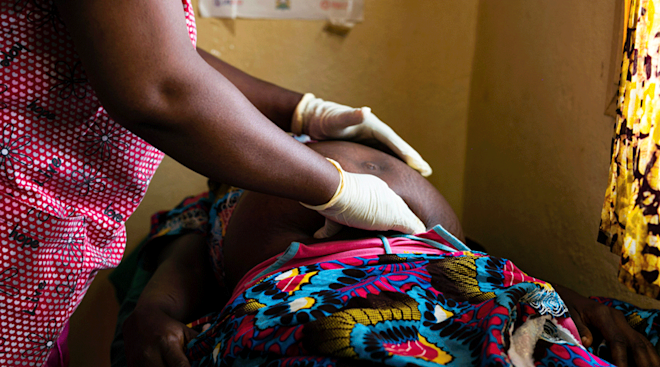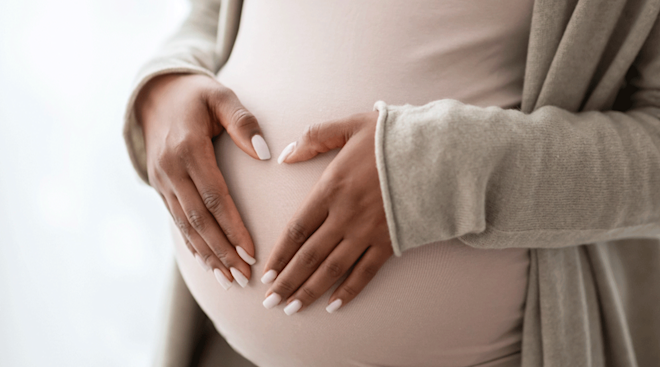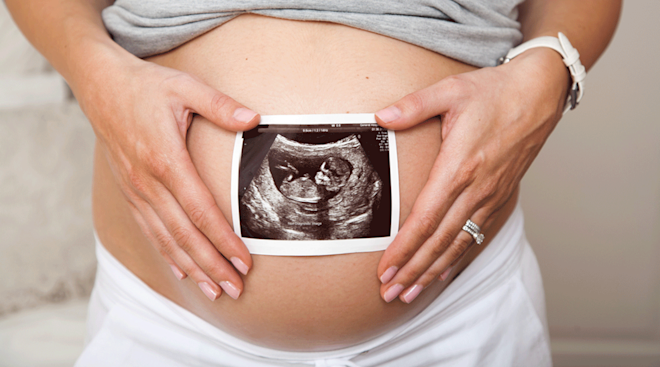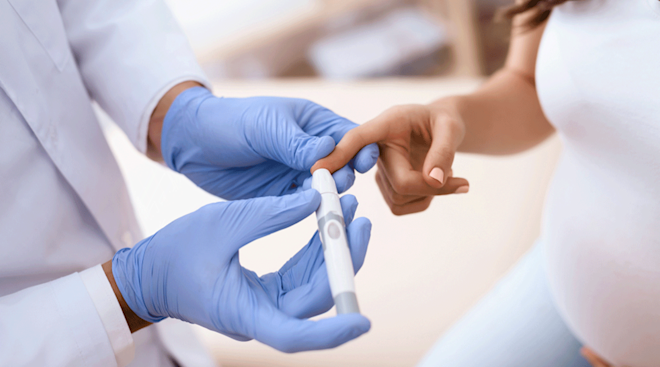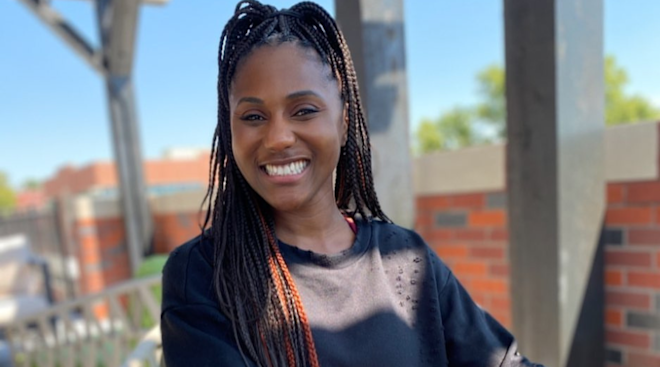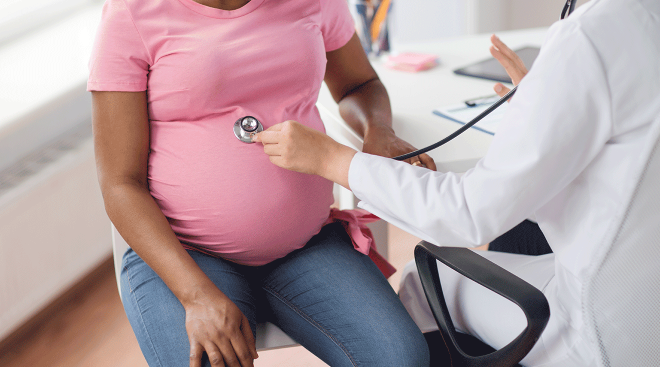How Birth Trauma Made Me Stronger
Like countless mothers across the US, I have lingering trauma from my birth experiences.
After having retained placenta not once but twice, I felt like I’d hit the lottery of misfortune. I wondered why my body kept failing to show up as expected. I’d experienced regular invalidation and self-doubt in my life, so when providers didn’t listen and downplayed my symptoms as “normal,” it felt as though my biggest fears had come true. The experiences happened three years apart but compounded with one another. Feeling the pain, convincing providers of my pain and having my postpartum experience disrupted left lingering scars on me. But it also helped me grow stronger as an individual.
“Transformative experiences often happen in the most difficult seasons of our lives,” says Ashley Bonhomme, MS, PMH-C, a master’s level psychotherapist certified in perinatal mental health counseling.
In the aftermath of my birth trauma, I grew, gaining necessary skills and community along the way. I also learned a lot about how we as a society frame new motherhood, a period that leaves us vulnerable and requires a cultural shift to heal. Still, there are many things I wish I had known beforehand.
After my experiences, I felt like I was going into battle each time I walked into a medical office. I knew my awareness and intellect wouldn’t save me, but they would be instrumental in making it clear that I wouldn’t accept medical suggestions without questions and explanations. I felt pressure to prepare for every doctor visit and was incredibly anxious and occasionally even felt sick. At the time, I didn’t know that what I was experiencing was called birth trauma.
Up to 45 percent of new moms and birthing people have experienced birth trauma, research says. According to the March of Dimes, birth trauma is “any physical or emotional distress you may experience during or after childbirth.” Birth complications, unexpected interventions and not having the birth one had hoped for are some of the many reasons moms and birthing people experience birth trauma.
Unresolved birth trauma can lead to low self-esteem, relationship issues, aggression, stress and anxiety. Bonhomme says watching our moods for “significant shifts that are outside of your ‘pre-pregnancy’ baseline,” especially hyper-vigilance and anxiety, is essential. “Because of the threatening nature of traumatic experiences, your brain can respond by being on high alert for similar threats in the future, which can manifest in new fears, excessive worrying and efforts to avoid certain triggers.”
Birth trauma might look “normal” on the outside. Divina Johnson, a birth trauma coach, says this is called “functional trauma.” “The indicators that are often missed are the woman who has nightmares, flashbacks and intrusive thoughts, [or] who feels numb and feels huge shame and guilt over their experience,” she says. Some people become “shells of their former selves,” as they hold on to their feelings, fearful of judgment, she says.
My own birth trauma experience was full of anxiety, feelings of overwhelm and irritability. Still, my biggest frustration wasn’t that it happened—it was that no one had prepared me. The center of my healing journey was ensuring others knew the symptoms of retained placenta, how to alert their doctor to concerns and the risks if the issue isn’t addressed. I sought counseling, but my biggest outlet was storytelling. The more I wrote and shared my stories with publications, individuals and healthcare organizations, the more empowered I felt that my experience would play a role in the greater good.
“While we don’t want to invite trauma into our lives to prove how strong we are, there can be power in making meaning of traumatic experiences,” Bonhomme says. “One of the most rewarding parts of accompanying folks on their paths to healing is witnessing how they grow through it.”
The American Psychological Association (APA) says that some people experience post-traumatic growth (PTG)—which can look like an increased appreciation for life, personal strength and passion for helping others—after trauma. Researchers note that openness to experience and extraversion can help facilitate this growth.
Johnson says that birth trauma helped her learn to advocate for herself. “Going through my experience gave me the lens to see this and then do something about it,” she says. “My voice will never be silenced again.” The life-changing experience empowered her to both support clients and live on her own terms.
“There’s a journey of personal growth and self-discovery that often follows a traumatic birth,” says Johnson. “It’s a chance to embrace the resilience and recognize the positive changes that have emerged from the experience.”
To manage trauma and heal, experts recommend taking the following steps:
- See a professional. “A trained therapist can help spot the signs of trauma and can normalize your experience in a way that’s not judgmental or dismissive,” Bonhomme says. She notes that therapy, whether in an individual or a group, allows you to process your experience, voice your pain and use healing tools. “Community is not only facilitative for healing, but it’s something I consider mandatory,” she says. She recommends in-person support groups or virtual communities like Postpartum Support International.
- Practice mindfulness and breathwork. The efficacy of breathwork in promoting healing and reducing stress is well-documented. Johnson says it’s also a tool to calm the nervous system post-trauma. She recommends starting with five-minute breathwork sessions. “Slowing down and finding calm each day is essential for healing,” she says.
- Share your narrative. “Writing is a way of reprocessing an experience that can help you feel validated and access emotions that you may not have realized were there,” says Bonhomme. Writing and sharing your narrative orally can also be impactful as you reframe your experience through the lens of survival and overcoming.
Despite my struggles, I found that my birth trauma became a catalyst for growth. The further I got in my experience and advocacy, the clearer it became that my body wasn’t the problem. Instead, it was an issue with how we frame birth and motherhood in much of the world. We’ve normalized mothers and birthing people’s physical pain at every stage of the journey. Because of this, symptoms aren’t taken as seriously as they should be. Before I could reframe my motherhood strategy with this new information, I had to evaluate how modern messages on motherhood left me vulnerable to trauma.
“It’s not only what happened to you, but also what didn’t happen,” says Johnson. “Not having your needs met or not having the birth you imagined is enough. Your experience is valid. It’s not your fault it happened; you deserve to live a life you love.”
I took this message to heart and learned how to show up for myself in healthcare experiences as I grew more proficient in helping others. Like Johnson, the more research I did to educate others, the more tools I had to navigate the experience myself and heal.
“Having the ability to recognize signs and understand what questions to ask medical providers and how to ask them confidently through lived experience can position you for a more empowered subsequent pregnancy and birth experience after a traumatic one,” says Bonhomme.
It’s been five years since my last birth experience and eight since my first. In that time, I’ve written hundreds of stories helping Black mothers and others reclaim and share their own birth stories.
I find immense joy in supporting my community and I feel more grounded in motherhood. I don’t wish my experience on anyone. But I’m thankful for the growth.
Please note: The Bump and the materials and information it contains are not intended to, and do not constitute, medical or other health advice or diagnosis and should not be used as such. You should always consult with a qualified physician or health professional about your specific circumstances.
Ashley Bonhomme, MS, PMH-C, CADC-II, is a master’s level psychotherapist certified in perinatal mental health counseling. She’s currently working with I Deserve Mental Wellness Services, a Georgia-based maternal healing collective specializing in Black pregnant and postpartum mental health. She holds a certification in addiction counseling and has served as a perinatal doula.
Divina Johnson is a birth trauma coach.
The Journal of Perinatal Education, Traumatic Childbirth and Its Aftermath: Is There Anything Positive?, June 2018
March of Dimes, The Toll of Birth Trauma on Your Health, March 2023
Scientific Reports, Effect of Breathwork on Stress and Mental Health: A Meta-Analysis of Randomised-Controlled Trials, January 2023
American Psychological Association, Growth After Trauma, November 2016
Learn how we ensure the accuracy of our content through our editorial and medical review process.
Navigate forward to interact with the calendar and select a date. Press the question mark key to get the keyboard shortcuts for changing dates.



































